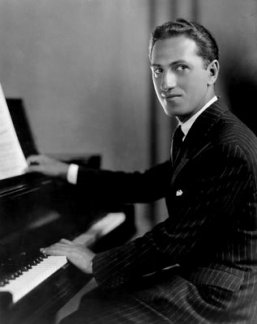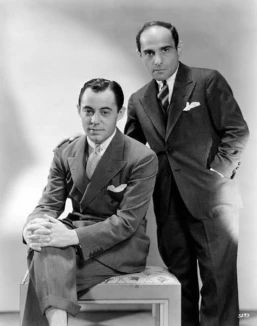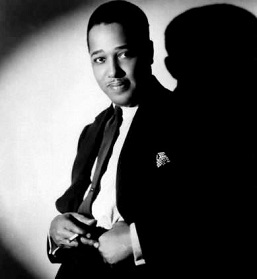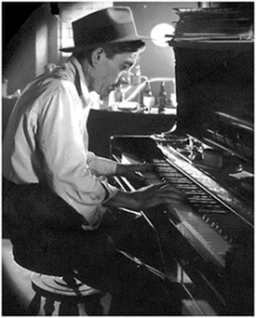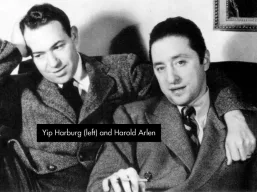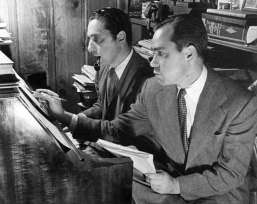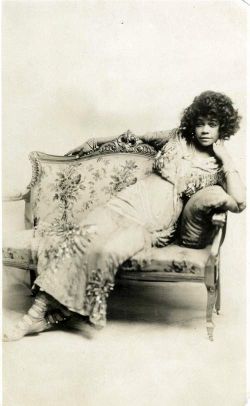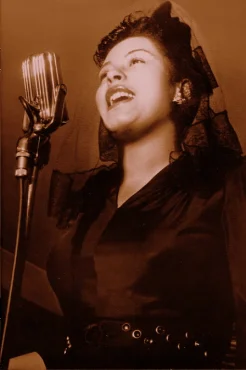Burt Bacharach & Hal David: selected hit songs, 1957-1962 + Another Tear Falls
______________________________________
- See Songbook’s Burt Bacharach index
In the “Early songwriting work” section of its Burt Bacharach page, Wikipedia says (image and highlights added):
In 1957, Bacharach and lyricist Hal David met while at the Brill Building (which Bacharach described as a “music factory”) in New York City, and began their writing partnership.[10] Almost a year later, they received a significant career breakthrough when their song “The Story of My Life” was recorded by Marty Robbins for Columbia Records, becoming a number 1 hit on the U.S. country music chart and reaching #15 on the Billboard Hot 100 in late 1957.[9]
Soon afterwards, “Magic Moments” was recorded by Perry Como for RCA Records, and became a number 4 U.S. hit in February of that year. These two songs were back-to-back No. 1 singles in the UK (“The Story of My Life” in a version by Michael Holliday), giving Bacharach and David the honor of being the first songwriters to have written consecutive No. 1 UK singles. Bacharach also worked with other lyricists at first, including Bob Hilliard and Hal David’s brother, Mack David but he and Hal David decided to form an exclusive writing partnership together in 1963. Bacharach has said what really got his career going, was when Calvin Carter, who at the time was chief of A&R at Vee-Jay Records, called saying that Jerry Butler wanted to do his song Make it Easy on Yourself and asked him to come out to New York and take charge of recording the song. It was the first time that Bacharach was in control of the whole recording process of one of his own songs. He says “I just went from there” [11]
 In the early and mid-1960s, Bacharach wrote well over a hundred songs with David. He produced a number of songs [for] New York soul singer Lou Johnson, including the original recordings of “Always Something There To Remind Me”, “Kentucky Bluebird (Message To Martha)” and “Reach Out For Me,” but the two were mainly associated throughout the decade with Dionne Warwick, a conservatory-trained vocalist.[9] Bacharach and David started writing a large portion of their work with Warwick in mind, leading to one of the most successful teams in popular music history.[12]
In the early and mid-1960s, Bacharach wrote well over a hundred songs with David. He produced a number of songs [for] New York soul singer Lou Johnson, including the original recordings of “Always Something There To Remind Me”, “Kentucky Bluebird (Message To Martha)” and “Reach Out For Me,” but the two were mainly associated throughout the decade with Dionne Warwick, a conservatory-trained vocalist.[9] Bacharach and David started writing a large portion of their work with Warwick in mind, leading to one of the most successful teams in popular music history.[12]
Over a 20-year period, beginning in the early 1960s, Warwick charted 38 singles co-written or produced by Bacharach and David, including 22 Top 40, 12 Top 20 and nine Top 10 hits on the American Billboard Hot 100 charts. During the early 1960s, Bacharach also collaborated with Bob Hilliard on a number of songs, including “Please Stay” and “Mexican Divorce” for The Drifters, “Any Day Now” for Chuck Jackson, “Tower of Strength” for Gene McDaniels, and “Dreamin’ All the Time” and “Pick Up the Pieces” for Jack Jones.
Singers and groups who successfully introduced songs in the years 1957 to 1962 with music by Burt Bacharach and lyrics, for the most part, by either Hal David or Bob Hilliard, include Marty Robbins, Perry Como, Jane Morgan, the Drifters, Chuck Jackson, Gene McDaniels, the Shirelles (“Baby It’s You”), Gene Pitney, Jerry Butler, and Dionne Warwick.
_________________________
All songs written by Burt Bacharach & Hal David.
1957
Burt Bacharach and Hal David wrote their first hit, “The Story of My Life,” in 1957, while working as a songwriting team within the famous Brill Building. It did better on the country chart than on the pop chart, #1 and #15, respectively. In 1958 they had another hit with Perry Como’s recording of “Magic Moments,” which reached #4. Both songs became chart toppers in the UK (“The Story of My Life” in a version by Michael Holliday).
The Story of My Life – Marty Robbins
____________________
1958
Magic Moments – Perry Como
_______________________
1959
With Open Arms
Jane Morgan with orchestra directed by Frank Hunter — issued in July 1959 on the 45 rpm single Kapp K-284X, b/w “I Can’t Begin to Tell You* — peaked at #39 on the Billboard Hot 100 chart
.
1961
Another Tear Falls (m. Burt Bacharach, w. Hal David)
- Additional recordings of the song are included in my feature page Another Tear Falls.
Gene McDaniels with The Johnny Mann Singers — recorded in November 1961; produced by Snuff Garrett; issued on 29 December 1961 on the single Liberty F-55405, as the B-side of “Chip Chip”
In the following clip from the British film It’s Trad Dad (1962), titled Ring-a-ding Rhythm! in the US, Gene McDaniels performs to a playback of the recording, on a darkened stage, dimly lit by a single spotlight.
_________________________
1962
The Man Who Shot Liberty Valance
Wikipedia says,
Burt Bacharach and Hal David later wrote a song based upon the plotline of the movie and called “The Man Who Shot Liberty Valance“, which became a Top 10 hit for Gene Pitney but was not used in the film. Apparently, Pitney was not asked to record it until after the film came out.[4] The chorus of the Pitney recording features two hard strikes on a drum in order to represent the shots that were fired. Jimmie Rodgers also recorded the song, in the Gene Pitney style.
From Songfacts.com:
Many people think that this is the theme song for the 1962 movie of the same name. Although it was written for the movie and everybody loved it, John Ford (the movie’s director) hated it and kept it off the soundtrack. Gene Pitney himself later said: “The song ‘Liberty Valance’ was written for the movie but for some strange reason never was put in the soundtrack.” [read more]
Gene Pitney — 1962, #4 US Hot 100
________________________
Only Love Can Break a Heart – Gene Pitney, #2 hit
______________________
Wikipedia says:
Dionne Warwick‘s session work on the Drifters’ track “Mexican Divorce” – recorded February 1962 – brought her to the attention of Burt Bacharach who subsequently had Warwick regularly provide vocals on demos of his songs beginning with “Make It Easy on Yourself”. On the strength of her vocals on another demo: that of “Is It Love That Really Counts”, Warwick was signed by Florence Greenberg of Scepter Records although Greenberg gave the last-named song to the Shirelles as a B-side while rejecting “Make It Easy on Yourself” altogether leading to that song’s being shopped to Jerry Butler. Warwick had assumed “Make It Easy on Yourself” would serve as her own debut single; on learning from Bacharach and co-composer Hal David that Jerry Butler was recording the song a keenly disappointed Warwick dismissed the composers’ assurance of providing her with an equally potent song with the words: “Don’t make me over, man” – ie. “Don’t con me”. Bacharach and David in fact utilized Warwick’s pessimistic response (with a shift in meaning) as the title for “Don’t Make Me Over” the song which would indeed launch Warwick’s hitmaking career.
_____________________
Make It Easy on Yourself
Wikipedia:
 Chicago-based Vee-Jay Records head a&r man Calvin Carter brought back “Make It Easy on Yourself” from a trip to New York City scouting song publishers. Carter played the demo of “Make It Easy on Yourself” — featuring Dionne Warwick’s vocal — for Vee-Jay artist Jerry Butler who commented: “Man, it’s a great song, and the girl who’s singing it, and the arrangement, is a hit.”
Chicago-based Vee-Jay Records head a&r man Calvin Carter brought back “Make It Easy on Yourself” from a trip to New York City scouting song publishers. Carter played the demo of “Make It Easy on Yourself” — featuring Dionne Warwick’s vocal — for Vee-Jay artist Jerry Butler who commented: “Man, it’s a great song, and the girl who’s singing it, and the arrangement, is a hit.”
When Carter explained that Florence Greenberg, the owner of Scepter Records who’d recently signed Warwick, was not interested in “Make It Easy on Yourself” Butler recalls being “ecstatic” and, wanting the same arrangement featured on the demo flew to New York City to record the song in a session overseen by Burt Bacharach (although Bacharach’s official credit was limited to arranger).
“Make It Easy on Yourself” was released in June 1962 to reach reached #20 on the Billboard Hot 100 that August; the track’s R&B chart peak was #18.[2]Chicago-based Vee-Jay Records head a&r man Calvin Carter brought back “Make It Easy on Yourself” from a trip to New York City scouting song publishers. Carter played the demo of “Make It Easy on Yourself” — featuring Dionne Warwick’s vocal — for Vee-Jay artist Jerry Butler…
Jerry Butler – 1962; peaked at #18 on the Billboard R&B singles chart and #20 on the pop chart (Hot 100)
.
The Walker Brothers – #1 UK hit, #16 US in 1965 — The arrangement and vocals are very closely modeled on the Jerry Butler version.
.
Cilla Black — from her second LP Cilla Sings a Rainbow, released 18 April 1966
.
Cissy Houston — from the 1977 LP Cissy Houston, (US) Private Stock PS 2031, (UK) Private Stock PVLP 1030
__________________________
Don’t Make Me Over
From the Wikipedia song profile:
 The songwriting/production team of Burt Bacharach and Hal David had been struck by Dionne Warwick’s work as a session singer on The Drifters’ “Mexican Divorce” in February 1962 and subsequently Warwick had regularly vocalized on demos of compositions by that Bacharach/David team, beginning with the song “Make It Easy on Yourself.” Florence Greenberg, owner of the Scepter Records label, had signed Warwick after hearing her voice on the demo for “It’s Love that Really Counts” although Greenberg did not wish to release that song as a single by Warwick (“It’s Love That Really Counts” was given to the Shirelles to serve as a B-side); Greenberg also rejected “Make It Easy on Yourself” which was subsequently placed with Jerry Butler, which would become a charted hit recording. Warwick had hoped “Make It Easy on Yourself” would serve as her recording debut.
The songwriting/production team of Burt Bacharach and Hal David had been struck by Dionne Warwick’s work as a session singer on The Drifters’ “Mexican Divorce” in February 1962 and subsequently Warwick had regularly vocalized on demos of compositions by that Bacharach/David team, beginning with the song “Make It Easy on Yourself.” Florence Greenberg, owner of the Scepter Records label, had signed Warwick after hearing her voice on the demo for “It’s Love that Really Counts” although Greenberg did not wish to release that song as a single by Warwick (“It’s Love That Really Counts” was given to the Shirelles to serve as a B-side); Greenberg also rejected “Make It Easy on Yourself” which was subsequently placed with Jerry Butler, which would become a charted hit recording. Warwick had hoped “Make It Easy on Yourself” would serve as her recording debut.
Upon learning from Bacharach and David the label didn’t think her style was correct for their new song, and that Jerry Butler was selected for recording it, a keenly disappointed Warwick felt used, manipulated and exploited, and dismissed the team’s assurance of writing her an equally viable song in her own style. According to a Biography cable television episode on Burt Bacharach, Warwick responded by shouting, nearly in a crying rant, at the songwriters as she left the recording studio: “Don’t make me over, man…” Bacharach and David looked at each other in the moment, in stunned disbelief, at her youthful outburst at them. David said to Bacharach, “Burt, I think we just heard the title of a new song”. David, never to waste life’s circumstances and moments as inspiration for a song, in fact went to work on lyrics and utilized Warwick’s authentic energetic outburst as the title and sentiment for “Don’t Make Me Over”, shifting the meaning of the phrase to “Accept me as I am”.[1]
Dionne Warwick — B-side of “I Smiled Yesterday” (Bacharach & David), Scepter single 1239, released October 1962; chart success: #21, Hot 100
.
(below) 1963 lip-sync performance
.
The Swinging Blue Jeans – 1966, #31 UK hit
weird German stereo version
.
Brenda & the Tabulations — issued on the single Top and Bottom Records 404, b/w “You’ve Changed” — Chart success: #15 on Billboard’s R&B chart, and #77 on the Hot 100
.
Petula Clark – from her album Blue Lady: The Nashville Sessions, 1976
.
Sybil had a #20 hit in 1989 with her cover of “Don’t Make Me Over” in new jack swing style. The single entered the Hot 100 on 23 September 1989.
 There were at least four studio cuts of the song released by Sybil: two on her 1987 debut album, Let Yourself Go (labeled “Nitetime” and “Daytime” mixes) ; a “Remix” on her 1989 self-titled album; and a 12″ single. It’s not clear to me whether the hit single was one of these, or a fifth issue.
There were at least four studio cuts of the song released by Sybil: two on her 1987 debut album, Let Yourself Go (labeled “Nitetime” and “Daytime” mixes) ; a “Remix” on her 1989 self-titled album; and a 12″ single. It’s not clear to me whether the hit single was one of these, or a fifth issue.
Sybil’s 1990 cover of “Walk On By” peaked at #6, the highest chart position by any artist for that song. According to bacharachonline.com, it was also the most recent recording of a Burt Bacharach composition to chart.
_____________________
Showtime at the Apollo, 1989
.
Ilana Miller, Mylin Brooks, and Brandy Brown — MMC3 (The All-New Mickey Mouse Club, Season 3) c. 1990 — arrangement obviously based on that of the very popular 1989 interpretation by Sybil
___________________
Message to Martha / Message to Michael
From Wikipedia”
The song was first recorded as “Message to Martha” by Jerry Butler in the 1962 session in New York City which produced Butler’s hit “Make It Easy on Yourself”. However, Butler’s “Message to Martha” was not released until December 1963 when it appeared as a track on Butler’s Need to Belong album. Marlene Dietrich recorded a German version of the song in 1964, singing to the instrumental track of the Butler original (with augmentations); Dietrich’s version was entitled Kleine Treue Nachtigall (‘faithful little nightingale’).
In 1964 Bacharach had Lou Johnson record the song as “Kentucky Bluebird”: this version reached Billboard’s “Bubbling Under the Hot 100” chart at #104 that fall. Johnson’s single was also released in the UK where it was swiftly covered by Adam Faith as “Message to Martha”, which reached #12 UK in November 1964, becoming Faith’s last Top 20 hit. Featured on the Adam Faith album released in the US in March 1965 in the wake of Faith’s US Top 40 hit “It’s Alright”, “Message to Martha” was performed by Faith on the Shindig! broadcast of 23 June 1965 but the track was not given a US single release. In Australia Faith’s “Message to Martha” – as “Kentucky Bluebird” – was issued on a single with “It’s Alright” in February 1965 and the single became a double-sided hit with a #15 peak.[1]
____________________
Message to Martha
Jerry Butler — recorded in 1962, released on the 1963 LP Need to Belong
.
Adam Faith — Parlophone (UK) R 5201, b/w “It Sounds Good to Me,” issued on 13 November 1964
__________________
Kleine treue Nachtigall — German text by Max Colpet
Marlene Dietrich – issued on the single (Germany) Barclay M 856, as the B-side of “Für alles kommt die Zeit” (released in late 1962, according to Serene Dominic)
.
Message to Michael
Dionne Warwick’s recording under the title “Message to Michael” reached #8 on the US Billboard Hot 100 in 1966, but in the UK there had been two earlier hits with the song under the title “Message to Martha,” Lou Johnson (#36) and Adam Faith (#12), both in 1964.
.
Bitte komm’ wieder — German portions of adapted lyric by Tobby Lüth
Ian & the Zodiacs – unreleased 45 rpm single (Germany) Fontana 269 325 TF, b/w “All of Me” — 45cat.com indicates that a May 1965 release date had been planned, and that a bootleg version was issued in 2000.
________________________
* The record jacket displayed by 45cat.com on the Kapp K-284X page clearly indicates that “With Open Arms” is the A-side of at least one version of this Jane Morgan single, and “I Can’t Begin to Tell You,” a 1945 song written by Mack Gordon and Jimmy Monaco, is the B-side. Discogs.com has “I Can’t Begin to Tell You” as the A-side on most of the 10 or so versions of the single, issued in various countries, that they list.












